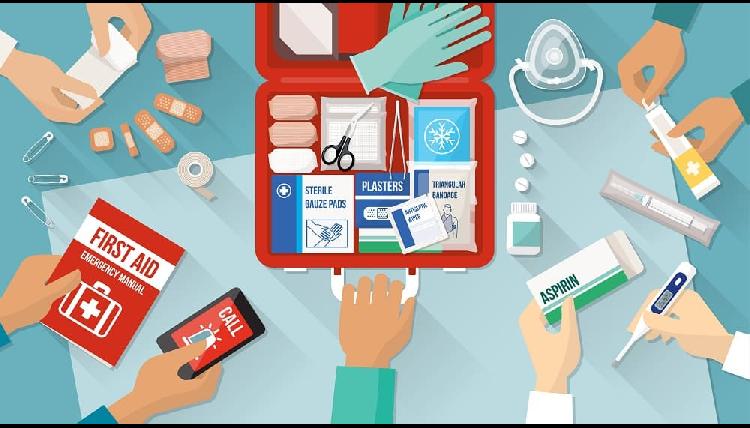-
Your Trusted Service Provider
- +91 9427555696
- drkhushboo26@gmail.com
Importance of Carrying First Aid & Physiotherapist Tips During Travel
October 10, 2026

Vacations are meant for relaxation, fun, and exploring new places. But often, in the middle of excitement, we overlook one important aspect — health and safety. Whether you are going on a short road trip, a mountain trek, or an international holiday, carrying a first aid kit can make all the difference in handling unexpected health issues.
Along with that, advice from physiotherapists can help travellers prevent body aches, muscle stiffness, or injuries that often come from long journeys. Let’s understand why a first aid kit is important and what physiotherapists recommend for safe and healthy travel.
Why Carry a First Aid Kit While Traveling?
- Quick Response in Emergencies
Minor injuries like cuts, bruises, or sprains are common while traveling. Having a first aid kit ensures immediate relief until professional medical help is available. - Saves Time and Reduces Stress
Looking for a pharmacy in an unknown city or remote area can be stressful. A ready kit saves time and gives peace of mind. - Helps in Remote Areas
When you travel to mountains, forests, or rural areas, medical facilities may not be nearby. A first aid kit becomes your first line of defence. - Personal Safety
Many travellers have allergies, blood pressure issues, or chronic conditions. Carrying prescribed medicines and basic supplies ensures safety on the go.
Must-Have Items in Your Travel First Aid Kit
- Bandages, cotton, antiseptic cream/spray – for cuts & wounds
- Pain relief spray/gel – for sprains or muscle pain
- Basic medicines – paracetamol, anti-allergy, anti-nausea, stomach relief tablets
- Hand sanitizer & face masks – for hygiene
- Digital thermometer – to monitor fever
- Personal medicines – prescribed by your doctor
Physiotherapist’s Travel Tips for a Healthy Vacation
- Stretch Before & After Travel
Long hours in a car, train, or plane can stiffen your muscles. Simple neck rolls, shoulder shrugs, and ankle rotations help keep the blood flowing. - Maintain Posture
Sit upright with back support while traveling. Use a small pillow or rolled towel to support your lower back. This prevents back pain. - Take Short Walk Breaks
If you’re traveling long distances, stop every 2–3 hours to walk and stretch. This reduces stiffness and prevents blood clots in the legs. - Stay Hydrated
Dehydration increases fatigue and muscle cramps. Carry a water bottle and sip regularly. - Pack Lightweight Luggage
Heavy bags put extra stress on your back and shoulders. Use trolleys or backpacks with even weight distribution. - Use Support if Needed
Knee caps, ankle braces, or posture supports can be carried if you have a history of joint pain or previous injuries. - Listen to Your Body
If you feel pain or strain, don’t ignore it. Rest, apply ice or heat packs if needed, and consult a professional if the pain continues.
Final Thought
Vacations should be memorable for happy moments, not for injuries or health scares. Carrying a basic first aid kit and following these physiotherapist-approved tips will make your journey safer, healthier, and more enjoyable. A little preparation goes a long way in ensuring that you return home with only beautiful memories.